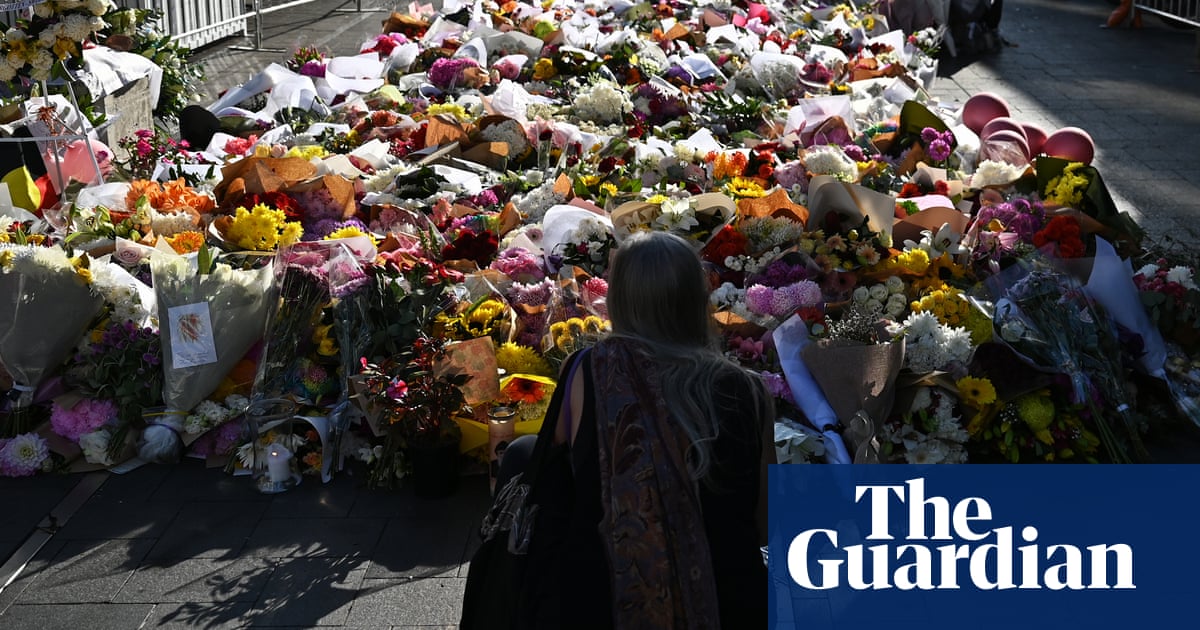A nurse at the Queensland medical practice where Joel Cauchi was treated for schizophrenia remembers him as a “compliant” and “diligent” patient and told an inquest that she vomited when she learned he had fatally stabbed six people at aSydneyshopping centre.
Cauchi, 40, killed Ashlee Good, 38, Jade Young, 47, Yixuan Cheng, 27, Pikria Darchia, 55, Dawn Singleton, 25, and Faraz Tahir, 30, and injured 10 others at Westfield Bondi Junction on 13 April last year before he was shot and killedby police inspector Amy Scott.
Cauchi was treated at a private Queensland clinic from 2012, when he was discharged from the public health system after 11 years in its care. Known only as RN2, the nurse said that she saw Cauchi on a monthly basis from 2015 to 2017, when she monitored his psychotropic medication for his schizophrenia and OCD.
Sign up for Guardian Australia’s breaking news email
When she learned of the stabbings, she was sent a text saying the Bondi Junction attacker was from Toowoomba.
“I looked it up and then I vomited when I saw it was him,” she told the court. “It’s odd, it’s incongruent with what I know of Joel. It really doesn’t make any sense.
“I was incredibly shocked. I wouldn’t have ever thought that was something that he would have done. I had a very visceral response to that,” she said.
In the third week of the five-week inquest into the seven deaths, the court was exploring why Cauchi was weaned off psychotropic medication and how he dropped out of the mental health system from 2020.
RN2 said Cauchi was “someone who was very compliant … he was never even late for appointments and there was no having to chase him up, he was very compliant”.
“I actually thought he was relatively insightful and he was also concerned about his illness in that he was quite diligent in monitoring for signs of relapse. He didn’t want to get unwell and he was very conscientious with regard to his mental health. I think that was evidenced by his punctuality and engagement with our service,” theNew South Walescoroner, Teresa O’Sullivan, heard.
“He had anxiety around it,” RN2 said, adding that he “wanted to get the support and do the right thing”.
Cauchi had been prescribed Clopine [clozapine], indicating that he had treatment-resistant schizophrenia, she said.
“That obviously meant that his condition was quite severe … However, because he was so compliant, he wasn’t difficult to manage and he was stable as well.”
Cauchi’s treatment plan was to reduce the Clopine to the most effective level relative to the side effects as opposed to ceasing the medication, the court heard.
Cauchi’s medical notes from early 2016 showed he was “easier and more relaxed” on a lower dose of Clopine. The nurse said she saw an improvement in his energy levels and “more quality of life” and did not have any concerns about his medication being lowered.
The nurse left the practice and returned in 2019, by which time Cauchi had stopped taking Clopine altogether.
Sign up toBreaking News Australia
Get the most important news as it breaks
after newsletter promotion
She said she had never heard of a patient ending Clopine without moving to other alternative drugs.
On 14 February 2020, the nurse spoke with Cauchi’s mother after she called the practice expressing her concern about his inability to keep his unit tidy. He was preparing to move to Brisbane at the time. When she broached the subject with him, he would become irritable, the court heard.
Notes from that call were read to the court.
“He can’t seem to look after himself”, the court heard, with dishes in his sink and “mess everywhere”. He was isolated, irritable and occasionally swearing, the practice was told.
“That was out of character,” the nurse said, adding that the concerns may have been due to Cauchi’s developmental delay because of his illness – or early warning signs of relapse.
Shortly afterwards, Cauchi moved to Brisbane and was discharged from the practice into the care of his GP.
“It’s not an ideal system,” RN2 said of schizophrenia patients – who are often highly disorganised – having to self-manage their transfer to a new psychiatrist via a GP.
In her opening remarks last month, the senior counsel assisting Peggy Dwyer SC said that Cauchi had successfully been treated for schizophrenia for more than 18 years. He stopped all psychotropic medication in June 2019, and “was effectively lost to follow-up from early 2020”, Dwyer told the court.
In Australia, support is available atBeyond Blueon 1300 22 4636,Lifelineon 13 11 14, and atMensLineon 1300 789 978. In the UK, the charityMindis available on 0300 123 3393 andChildlineon 0800 1111. In the US, call or textMental Health Americaat 988 or chat 988lifeline.org.
